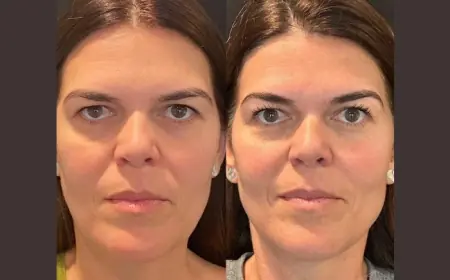General Surgery Billing Explained: From Coding to Payment
MEDICOTECHLLC is a trusted medical billing, coding, and credentialing company serving healthcare providers nationwide. With certified professionals and advanced systems, we deliver accurate claims processing, streamlined credentialing, and compliant coding solutions. Our services help practices reduce denials, boost reimbursements, and improve overall revenue cycle performance allowing providers to focus more on patient care.

General surgery is one of the most diverse specialties in medicine, covering everything from appendectomies and hernia repairs to complex abdominal operations. While surgeons focus on patient care, an equally important part of their practice lies behind the scenes: medical billing and revenue cycle management (RCM) .
Accurate general surgery billing ensures that providers are properly reimbursed for their services, claims are processed smoothly, and compliance risks are minimized. Because surgery often involves multiple procedures, modifiers, and bundled codes, billing errors are common—and costly.
1. Understanding General Surgery Billing
General surgery billing is the process of converting surgical procedures into standardized billing codes, submitting claims to payers, and collecting payments. It involves three major coding systems:
-
CPT (Current Procedural Terminology) Codes – Identify the surgical service provided (eg, hernia repair, cholecystectomy).
-
ICD-10-CM Codes – Document the patient's diagnosis or condition that justifies the surgery.
-
HCPCS Codes – Capture supplies, implants, and drugs not covered by CPT codes.
Together, these codes form the backbone of the billing process, allowing insurers to evaluate medical necessity and determine reimbursement.
2. The Coding Process in General Surgery
a. Procedure Coding (CPT)
Each surgical service has a unique CPT code. For example:
-
49505 – Inguinal hernia repair, initial
-
44950 – Appendectomy
-
47562 – Laparoscopic cholecystectomy
Because surgeries are often complex, coders must decide whether procedures are bundled (covered under one code) or billable separately.
b. Diagnosis Coding (ICD-10-CM)
Diagnosis codes justify the need for the procedure. For example:
-
K40.20 – Bilateral inguinal hernia without obstruction or gangrene
-
K35.80 – Acute appendicitis
-
K80.20 – Calculus of gallbladder without cholecystitis
c. Modifiers
Modifiers are critical in general surgery billing services . They provide extra details, such as whether a procedure was bilateral, staged, or performed by multiple surgeons. Common ones include:
-
Modifier 51 – Multiple procedures
-
Modifier 59 – Distinct procedural service
-
Modifier 62 – Two surgeons
-
Modifier 80/81 – Assistant surgeon
Correct modifier use often determines whether a claim gets paid or denied.
3. The Revenue Cycle in General Surgery Billing
The billing process follows a cycle:
-
Pre-authorization – Insurers often require prior approval for elective surgeries.
-
Charge capture – Recording all billable services, including supplies and anesthesia.
-
Coding & claim submission – Applying CPT/ICD-10/HCPCS codes and submitting claims electronically.
-
Adjudication – The payer reviews the claim, checks medical necessity, and applies coverage rules.
-
Payment posting – Approved claims are reimbursed; denials are logged.
-
Appeals & patient billing – Denied or underpaid claims may be appealed; balance bills go to patients when appropriate.
Efficient management of this cycle is essential for financial stability.
4. Common Challenges in General Surgery Billing
-
Bundling Errors – Some procedures are bundled under a single code; Billing them separately can trigger denials.
-
Incorrect Modifier Use – Misused modifiers can delay or reduce payments.
-
Medical Necessity Denials – If documentation doesn't support the surgery, insurers may reject the claim.
-
Authorization Issues – Lack of prior authorization for elective procedures often leads to non-payment.
-
Global Period Confusion – Post-operative visits are often bundled into the surgical fee; Billing them separately is a common mistake.
5. Best Practices for Accurate Surgery Billing
-
Detailed Documentation – Operative notes should include the diagnosis, procedures performed, techniques, and complications.
-
Regular Coding Audits – Audits catch errors early, prevent compliance risks, and improve claim acceptance rates.
-
Training Staff – Surgeons and coders should be updated on annual CPT/ICD-10 changes.
-
Technology Integration – Using electronic health records (EHR) with integrated billing helps reduce manual errors.
-
Specialized RCM Services – Partnering with a medical billing services in New Jersey that specializes in general surgery improves collections and compliance.
6. How Payments Are Determined
Payment for general surgery depends on:
-
Relative Value Units (RVUs) – Assigned to each CPT code, reflecting physician work, practice expenses, and malpractice risk.
-
Payer Contracts – Each insurer negotiates rates with providers.
-
Medicare Fee Schedule – Sets baseline reimbursement rates that many insurers follow.
-
Global Surgical Package – Includes pre-op, intra-op, and post-op care (eg, 90 days for major surgeries).
Understanding these rules ensures that surgeons get full reimbursement for their services.
7. Future Trends in General Surgery Billing
-
Shift to Value-Based Care – Payments increasingly depend on outcomes, not just services rendered.
-
AI & Automation in Coding – AI tools are improving accuracy and reducing manual work.
-
Increased Compliance Scrutiny – Payers and regulators are closely monitoring surgical claims for fraud, waste, and abuse.
-
Telehealth in Surgery – Virtual consultations and follow-ups are now billable under certain CPT codes.
Conclusion
General surgery billing is far more complex than simply sending out invoices. It requires an in-depth understanding of coding systems, payer rules, documentation, and compliance standards. From pre-authorization to final payment, every step must be handled with precision.
By combining accurate coding, strong documentation, effective RCM strategies, and ongoing education, general surgeons can maximize revenue while avoiding costly errors.
What's Your Reaction?
 Like
0
Like
0
 Dislike
0
Dislike
0
 Love
0
Love
0
 Funny
0
Funny
0
 Angry
0
Angry
0
 Sad
0
Sad
0
 Wow
0
Wow
0



























































